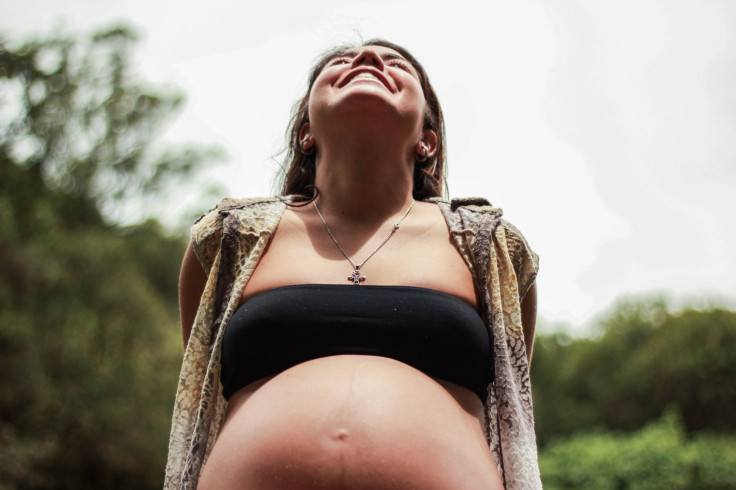Regular Exercise May Help Pregnant Women Skip Common Pelvic Girdle Pains While Carrying Baby To End Of Term

For women expecting to conceive a child, exercise may be the key to a more comfortable pregnancy. A new study published in the British Journal of Sports Medicine has linked a lack of physical activity to pregnancy complications, and exercise five days a week may also prevent pain.
The researchers recommended running, ball games, and aerobics for lowering risk of the joint and ligament condition called pelvic girdle pain, which develops in some women during their pregnancy. Symptoms include uncomfortable misalignment or stiffness in the sacroiliac joint, located at the back of the hips, and pain across the lower back or in the area between the vagina and anus. Some women also experience radiating pain through their thighs, and can hear a clicking or grinding sound in their pelvic area, which is most noticeable when they walk, go upstairs, stand on one leg, and turn over in bed.
For the study, researchers examined 39,000 pregnant women between the ages of 14 and 46 who were expecting their first child between 2000 to 2009. The women were given ultrasounds during their 17th week of pregnancy and asked about the kinds of exercise, if any, they engaged in three months before becoming pregnant. During the 30th week of their pregnancy, the women were asked if they were experiencing any pelvic girdle pain and, if they answered yes, they were also asked about its intensity and frequency.
More than half of the women reported they exercised at least three times a week before they became pregnant and nearly all (90 percent) of those women were still exercising at week 17. One out of every eight women who said they didn’t exercise in the months leading up to their pregnancy experienced pelvic girdle pain at week 30. Women who experienced pelvic girdle pain were also more likely to be under the age of 25, overweight, and a smoker.
Before exercise was found to be a useful preventive measure, doctors often taught pregnant women how to stand correctly and move effectively during activities as simple as standing up, sitting down, and walking. Sometimes, these women would be given a support belt or, in more extreme cases, be sent to an acupuncturist or chiropractor who specializes in treating pregnant women.
Exercise, however, might offer the best benefit when it comes to preventing future pregnancy discomfort. The research team found women who engaged in high-impact exercises like running, aerobics, and ball games were less likely to experience pelvic girdle pain. In addition to this benefit, research has also found exercise could make women’s bodies more capable of carrying a baby as well as potentially emitting analgesic feel-good endorphins, which make the pregnancy easier to handle.
Source: Vangen S, Owe KM, Bjelland EK, Stuge B, Orsini N, and Eberhard-Gran M. Exercise level before pregnancy and engaging in high-impact sports reduce the risk of pelvic girdle pain: a population-based cohort study of 39,184 women. British Journal of Sports Medicine. 2015.



























